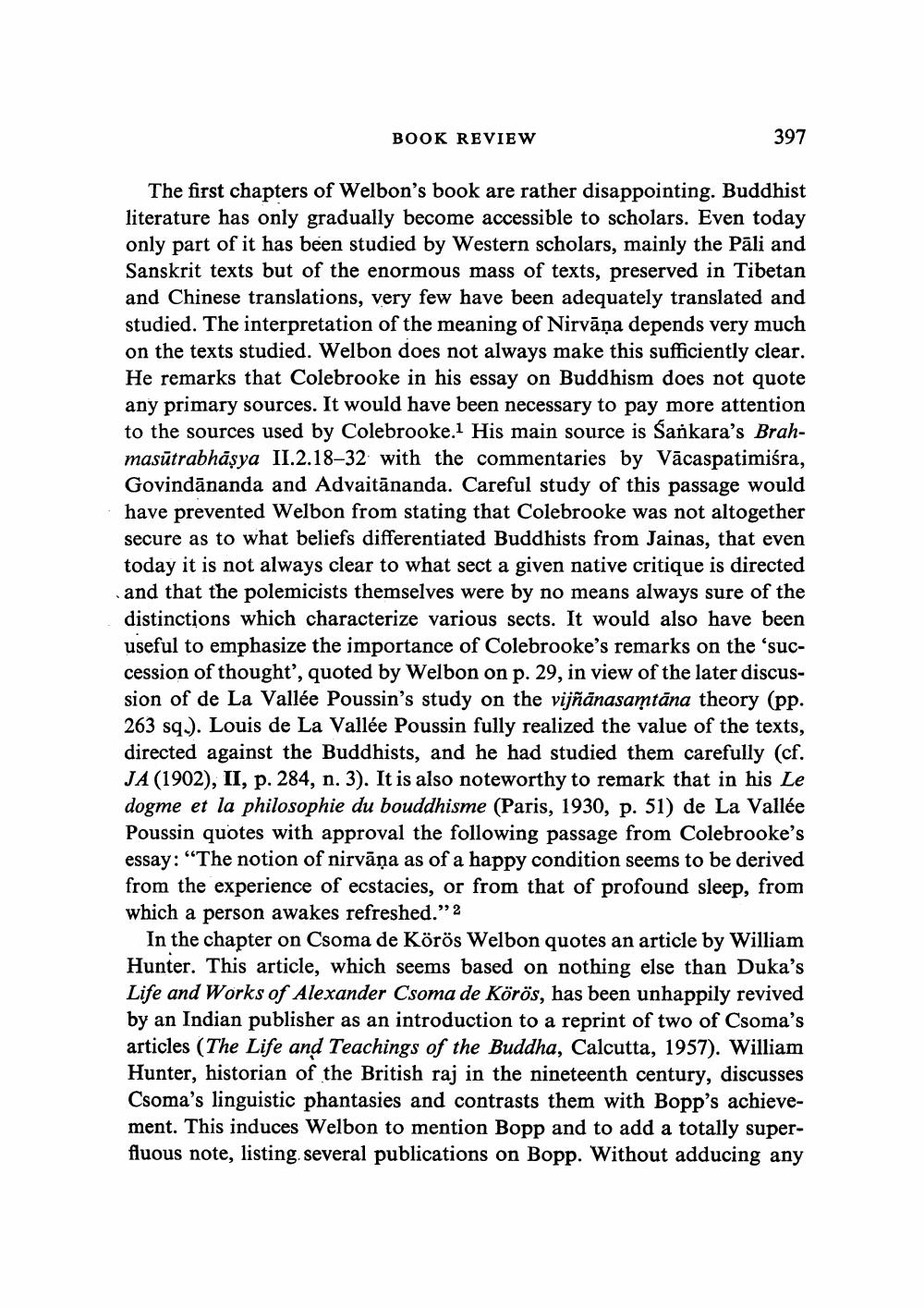Book Title: Book Review Of Buddhist Nirvana And Its Western Interpreters Author(s): Publisher: View full book textPage 2
________________ BOOK REVIEW 397 The first chapters of Welbon's book are rather disappointing. Buddhist literature has only gradually become accessible to scholars. Even today only part of it has been studied by Western scholars, mainly the Pali and Sanskrit texts but of the enormous mass of texts, preserved in Tibetan and Chinese translations, very few have been adequately translated and studied. The interpretation of the meaning of Nirvana depends very much on the texts studied. Welbon does not always make this sufficiently clear. He remarks that Colebrooke in his essay on Buddhism does not quote any primary sources. It would have been necessary to pay more attention to the sources used by Colebrooke.1 His main source is Sankara's Brahmasutrabhasya II.2.18-32 with the commentaries by Vacaspatimisra, Govindananda and Advaitananda. Careful study of this passage would have prevented Welbon from stating that Colebrooke was not altogether secure as to what beliefs differentiated Buddhists from Jainas, that even today it is not always clear to what sect a given native critique is directed and that the polemicists themselves were by no means always sure of the distinctions which characterize various sects. It would also have been useful to emphasize the importance of Colebrooke's remarks on the 'succession of thought', quoted by Welbon on p. 29, in view of the later discussion of de La Vallee Poussin's study on the vijnanasamtana theory (pp. 263 sq.). Louis de La Vallee Poussin fully realized the value of the texts, directed against the Buddhists, and he had studied them carefully (cf. JA (1902), II, p. 284, n. 3). It is also noteworthy to remark that in his Le dogme et la philosophie du bouddhisme (Paris, 1930, p. 51) de La Vallee Poussin quotes with approval the following passage from Colebrooke's essay: "The notion of nirvana as of a happy condition seems to be derived from the experience of ecstacies, or from that of profound sleep, from which a person awakes refreshed." 2 In the chapter on Csoma de Koros Welbon quotes an article by William Hunter. This article, which seems based on nothing else than Duka's Life and Works of Alexander Csoma de Koros, has been unhappily revived by an Indian publisher as an introduction to a reprint of two of Csoma's articles (The Life and Teachings of the Buddha, Calcutta, 1957). William Hunter, historian of the British raj in the nineteenth century, discusses Csoma's linguistic phantasies and contrasts them with Bopp's achievement. This induces Welbon to mention Bopp and to add a totally superfluous note, listing several publications on Bopp. Without adducing anyPage Navigation
1 2 3 4 5 6 7 8
